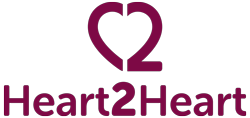CHD update on devices to heat & cool blood during some heart surgery
If you or your child have had heart valve replacement or repair surgery, or a heart or lung transplant since January 2013 you should be aware that Public Health England (PHE), the Medicines and Healthcare Regulatory Authority (MHRA) and NHS England have carried out an investigation suggesting that some hospitals have used a device used to heat and cool the blood during some types of heart surgery has been linked to a rare bacterial infection caused by Mycobacterium Chimaera. This device is essential for carrying out surgery and PHE are now working on reducing the risk. This is an issue that has affected one particular type of machine across the world.
The risk from this infection is very low – only about one person in every 5,000 people who have open heart surgery will develop it. For patients who do become infected, this infection can be slow to develop and difficult to diagnose. It is possible to develop symptoms several years after surgery.
Symptoms of an infection with this bacteria are similar to many other illnesses, so , if you experience any of the following, although unlikely to be caused by this bacteria, it should be considered by your GP or other health care professional as a possibility that needs to be excluded.
Symptoms to be aware of include;
- Unexplained fevers
- Unexplained weight loss
- Increasing shortness of breath
- Waking up with bed sheets showing signs of sweating (night sweats)
- Joint or muscular pain
- Nausea, vomiting or abdominal pain
- Abnormal levels of tiredness / fatigue
- Pain, redness, heat and / or pus around the surgical site.
This infection cannot be spread person-to-person and remember there are other causes for these symptoms so there is no need to be alarmed or to seek emergency treatment.
- This current January 2017 guidance is being revised and updated alongside additional guidance for GPs.
- The revised guidance will ask hospitals that provide heart surgery to identify all patients who have had a heart valve operation since January 2013 and cross check this information with GPs.
- Identified patients will then be contacted via a letter from their hospital to make them aware of the potential, but very low, infection risk.
Further information:









